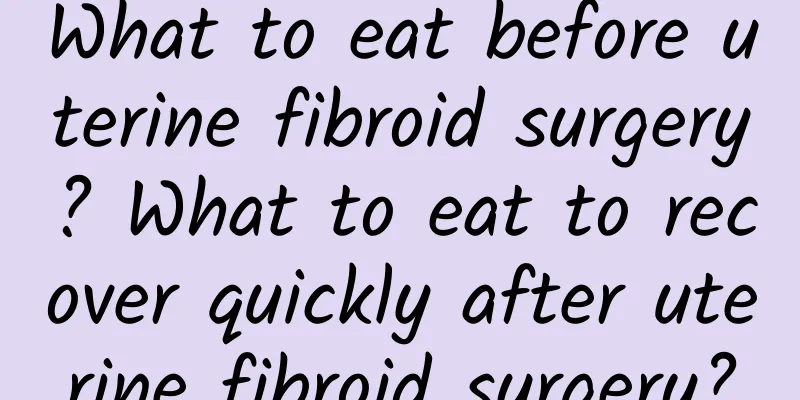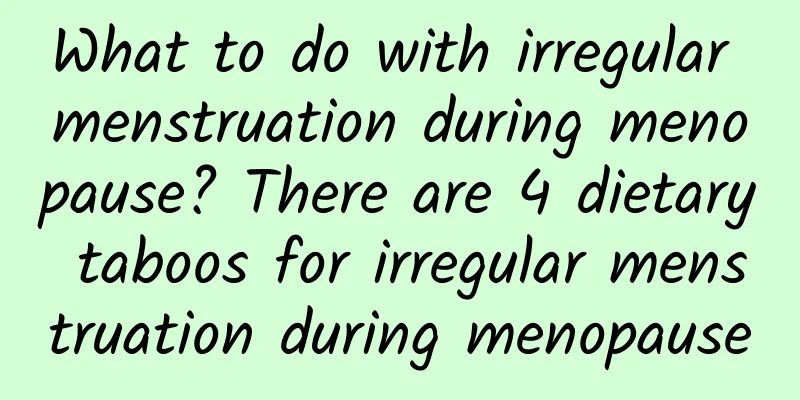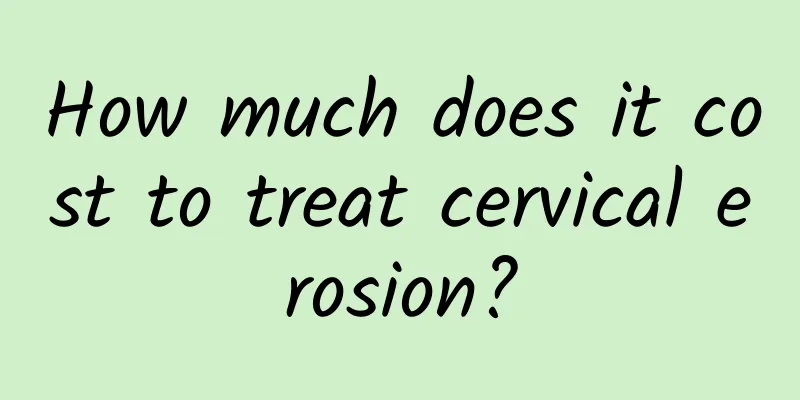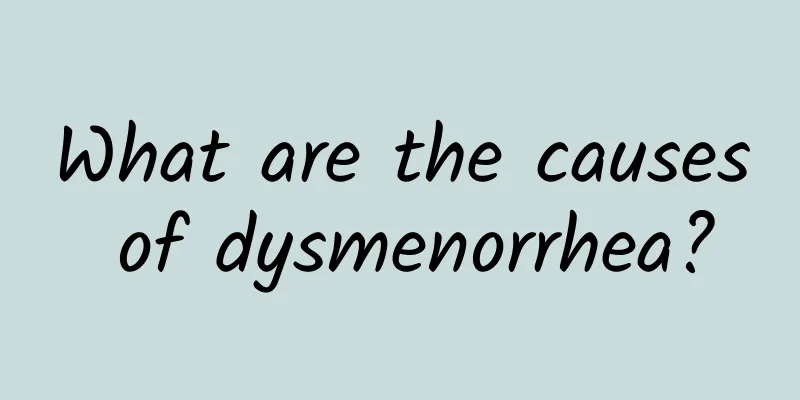What should I pay attention to when removing uterine fibroids? How many days do I need to stay in the hospital to remove uterine fibroids?
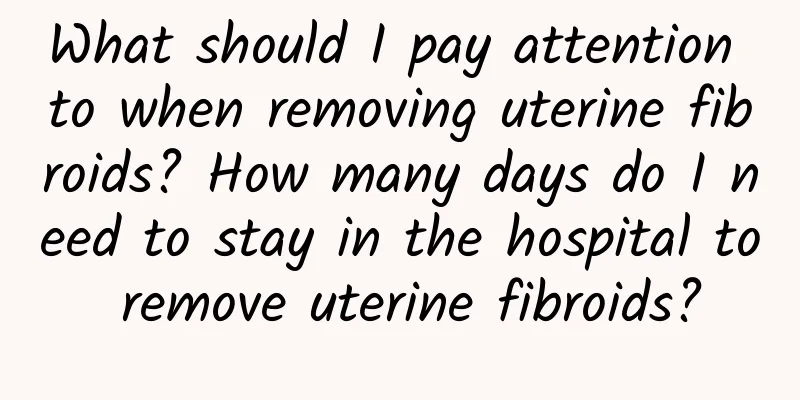
|
What should I pay attention to when removing uterine fibroids? How many days do I need to stay in the hospital to remove uterine fibroids? Uterine fibroids are a common gynecological disease that occurs in the muscle layer of the uterus. It can cause irregular menstruation, pelvic pain, pelvic compression symptoms, and in severe cases, infertility. Therefore, it is very important for women with uterine fibroids to remove it. But before the operation, we need to pay attention to some matters. If you have been diagnosed with uterine fibroids, it is recommended that you consult a doctor as soon as possible to understand your condition and seek professional advice. Different fibroid conditions may require different treatments, including surgical treatment, drug treatment, etc. It is important to understand your condition clearly and follow the doctor's advice. A comprehensive physical examination is required before surgery, including blood routine, liver function, kidney function, electrocardiogram and other tests to ensure that the body is in good condition and can undergo surgery smoothly. At the same time, the size and location of the uterine fibroids need to be checked to determine the most appropriate surgical plan. Before surgery, you also need to pay attention to the adjustment of diet and lifestyle habits. First, you should quit smoking and drinking and maintain good living habits. Secondly, you should pay attention to a balanced diet, increase the intake of protein, vitamins and minerals, and help improve the body's immunity. Before surgery, you also need to stop all drug treatments, especially anticoagulants, to avoid the risk of intraoperative bleeding. After the operation, you need to stay in the hospital for a period of time to recover. The specific number of days required for hospitalization varies depending on individual circumstances. Generally speaking, if there are no complications, you can be discharged from the hospital 2-3 days after the operation. During the recovery period after the operation, you need to pay attention to rest and avoid strenuous exercise and fatigue. The diet should be light and easy to digest. Eating more nutritious foods will help speed up wound healing and physical recovery. Special attention should also be paid to postoperative care. Follow the doctor's instructions to take the medicine on time and in the right amount, pay attention to the cleanliness of the wound, and avoid infection. In addition, regular follow-up visits are required after surgery to ensure that the body recovers well. Uterine fibroids are a benign tumor that mostly occurs in women of childbearing age. Its symptoms include irregular menstruation, pelvic pain, pelvic compression symptoms, etc. If the uterine fibroids grow rapidly, are large in size, or are accompanied by obvious symptoms that affect the quality of life, then you need to consider surgical removal. After the operation, the patient needs to rest properly, pay attention to diet conditioning, and follow the doctor's instructions for recovery care. Regular check-ups and active prevention of recurrence are also issues that patients with uterine fibroids need to pay attention to. Removing uterine fibroids requires patients to pay attention to a series of matters, from preoperative preparation to postoperative recovery. Maintaining a good diet, following the doctor's advice, and regular check-ups are the key to ensuring the effectiveness of the surgery and good health. |
<<: What to do for hysterectomy and how much does it cost to do hysterectomy?
Recommend
Women need to know the dangers of pelvic inflammatory disease
Many women may have only a vague understanding of...
How many days is appropriate for abortion surgery?
Artificial abortion is a common method of termina...
A brief analysis of the common transmission routes of Trichomonas vaginitis
Many female friends may not have heard of Trichom...
What should I do if my menstrual flow becomes less and less after I turn 40?
What should I do if my menstrual flow becomes les...
Experts explain the symptoms of uterine fibroids
What are the symptoms of uterine fibroids? I beli...
What are the clinical manifestations of pelvic inflammatory disease?
Pelvic inflammatory disease is an inflammation of...
What are the symptoms of menopause? Physical health will also be greatly affected
Women will enter menopause around the age of 50. ...
How to regulate irregular menstruation for women? Tips for irregular menstruation for women
Many women have irregular menstruation in their l...
Low-calorie foods to slim down your belly? Eating the wrong food may lead to fat accumulation
Do you often eat low-calorie foods because you ar...
What kind of herbal tea can I drink when I have uterine fibroids?
Uterine fibroids are a common benign tumor in wom...
What are the chances of curing pelvic peritonitis?
Can pelvic peritonitis be cured? Gynecological ex...
Can I take ibuprofen for dysmenorrhea? Don't take it too often
If the pain during dysmenorrhea is severe, women ...
How to identify cervicitis from symptoms? What are the folk remedies for cervicitis?
How to identify cervicitis from symptoms? What ar...
You have vulvar leukoplakia and itching.
Vulvar leukoplakia is a progressive disease. It w...
Common symptoms of vaginal candidiasis
Candidal vaginitis is a common gynecological dise...



